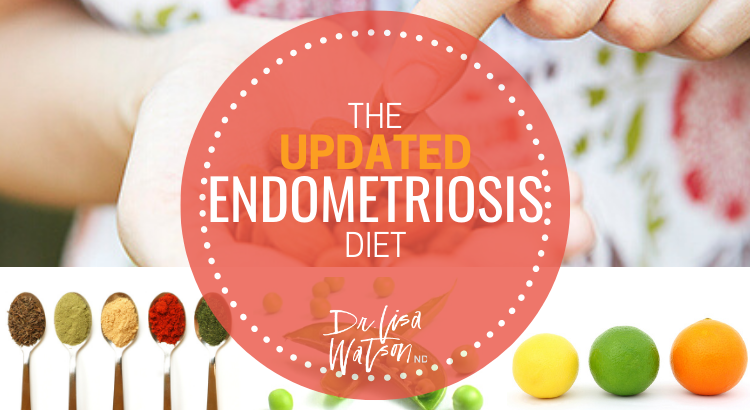
The conversation around diet and endometriosis is ever changing and evolving. Since I first published this article in 2015, much research has highlighted the benefits of diet for managing symptoms of endometriosis. With 1 in 10 women suffering from the pains and frustrations of endometriosis, many of them are looking for strategies and research to lessen their pain and give them back a sense of power and control over their body.
So whether you have been diagnosed with endometriosis, or just suspect you may have it, a good place to start is to follow the Endometriosis Diet.
The Endometriosis Diet
While most women look at the Endo Diet as a means of reducing painful periods, there are actually a number of reasons to follow the recommendations discussed below.
The Endo Diet is anti-inflammatory, nutrient rich, and supports not just your reproductive health, but your overall health. Some of the benefits of following the Endo Diet include:
- Balancing the immune system
- Decreasing inflammation
- Supporting hormone regulation
- Improving detoxification
The Endo Diet: Foods to Avoid
-
Avoid alcohol
Studies have found that women who consume alcohol have up to a 50% increased risk of developing endometriosis. Drinking alcohol depletes B vitamins that are necessary for hormone detoxification. It also has estrogen-like effects on the body and can worsen endometriosis symptoms. If there is one change to make to positively impact endo, it’s cutting out alcohol.
Sugar is another major culprit in messing up our hormone balance. For endo it looks something like this: when we have refined sugars it causes a spike in insulin and insulin-like growth factor production. These cause a reduction in sex hormone binding globulin, which causes more estrogen to be free and active in our bodies. In animal studies this has been shown to cause a proliferation in endometrial tissue and a potential concern for development and worsening of endometriosis.
Long story short – sugar is fuel for endometriosis. Best to not throw fuel on the fire and cut it out of your diet.
-
Avoid caffeine
While research studies are inconclusive, we know that the consumption of caffeinated beverages can increase the availability of estrogen during the peak estrogen phases of our cycle. We also know that there is some research showing women consuming two cups of coffee per day have twice the risk of developing endometriosis. So best to cut this back, or out altogether!
-
Avoid red meat
Despite my status as a long time vegetarian (over 30 years), I have many patients who regularly consume red meat. Unfortunately for women with endometriosis the research is quite well established that red meat can promote the production of inflammatory prostaglandins, increasing inflammation and pain. Another major issue is that cattle and pigs fed grains treated with pesticides tend to concentrate these hormone-disrupting chemicals (such as dioxin) in their fat and muscle tissues. Consumption of these meats is a leading source of human exposure to organochlorines – which are disastrous for endo.
-
Avoid gluten
While the research is a bit dated (2012 is the most referenced study), there are thousands, if not hundreds of thousands of women who have shared their experience of improving their endo symptoms with avoiding gluten. In that notable 2012 study of the 200 women in the study 75% of them reported an improvement in pain and none reported an increase in pain. Honestly, it’s one of the most common recommendations I make with my patients, and I often see remarkable results.
-
Avoid saturated and TRANS FATS
Fats are one of the most important macronutrients for hormone balance and human health. However, the type of fat really matters. For women with endo the biggest concerns come from saturated fats – found mostly in red meats and butter (and other dairy products). Women with higher saturated fat intake are typically found to have higher estrogen levels and are a higher risk for developing endo. Trans fats, found in highly processed “foods”, are associated with higher levels of inflammatory mediators like interleukin 6 and C-reactive protein. Best to cut out all sources of saturated fats – butter, red meat, and stick with lower fat dairy products, hard cheeses, and healthier oils such as flax oil, olive oil, and nut oils.
Endo Diet: Foods to Enjoy
-
Organic fruits and vegetables
Fruits and vegetables provide fiber that support healthy digestive function as well as nutrients to support immune function, detoxification and decrease inflammation. Women who consume two servings of fruit per day have a 20% decreased risk of endometriosis. There is research that shows women who eat one citrus fruit per day are at a lower risk for developing endo compared to women who ate citrus infrequently. And honestly, selecting organic fruits and vegetables whenever possible will minimize intake of pesticides that further disrupt hormone function.
-
Vegetarian proteins
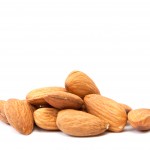 Women who eat a vegetarian diet excrete 2-3 times more estrogen in their feces and have half as much estrogen in their blood as meat-eaters. While estrogen doesn’t cause endometriosis, we know that supporting estrogen detoxification is important in managing the spread and severity of endo. Focus on eating soy, almonds and nuts and nut butters, beans, lentils and legumes – especially since I want you to cut back on your red meat!
Women who eat a vegetarian diet excrete 2-3 times more estrogen in their feces and have half as much estrogen in their blood as meat-eaters. While estrogen doesn’t cause endometriosis, we know that supporting estrogen detoxification is important in managing the spread and severity of endo. Focus on eating soy, almonds and nuts and nut butters, beans, lentils and legumes – especially since I want you to cut back on your red meat!
-
Fish
Fish, especially cold-water fish like salmon and mackerel, are a rich source of anti-inflammatory omega 3 fatty acids. While supplements of omega 3s are often necessary to achieve the optimal anti-inflammatory benefits, consuming fish as a protein is a good recommendation. Two servings per week seems to be ideal – more than this can result in undesirable exposure to PCBs and other environmental contaminants.
-
Flax seeds
Another rich source of omega 3s, ground flax seeds also contain lignans that provide an ideal source of fiber to support digestion and healthy bacteria balance. As we learn more about the impact the microbiome has on endometriosis, this recommendation gets more and more support.
-
Cabbage family vegetables
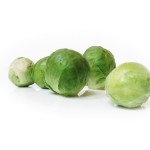 The Brassica (cabbage) family of vegetables support detoxification and encourage a healthy estrogen balance by favouring production of the less active form of estrogen. Consume broccoli, brussels sprouts, cabbage, kale, kohl rabi and cauliflower regularly to reap these benefits.
The Brassica (cabbage) family of vegetables support detoxification and encourage a healthy estrogen balance by favouring production of the less active form of estrogen. Consume broccoli, brussels sprouts, cabbage, kale, kohl rabi and cauliflower regularly to reap these benefits.
-
Leafy green vegetables
Leafy green vegetables provide key minerals for detoxification and support liver function. Frequent consumption of leafy greens (two servings per day) has been shown to significantly decrease the incidence of endometriosis.
-
Onions, garlic and leeks
These vegetables contain organosulfur compounds that enhance immune function and induce enzymes that detoxify the liver. They are also rich sources of quercetin, a bioflavonoid that stimulates the immune system and decreases inflammation.
-
High fiber foods
High fiber foods are incredibly important for endometriosis because they support the optimal balance of friendly bacteria in the digestive tract. Friendly bacteria support the elimination of estrogen in the feces. Focus on fiber in the form of vegetables, fruits and whole grains such as barley, quinoa, millet, brown and wild rice.
-
DairY
While dairy used to be on the AVOID side of the endo diet, research has really brought a lot of light to the situation as far as this food group goes. Dairy has been found in studies to REDUCE the risk of developing endometriosis. Now, I suspect this may be due to the impact of the vitamin D and calcium found in dairy, as these interventions have both been shown in studies to benefit women with endo. But who am I to argue the research? If you enjoy dairy, then you can continue to do so. HOWEVER, I’d recommend sticking with the lower saturated fat dairy products – low fat choices instead of higher fat choices, because of the research on saturated fats and endo.
Far More Than Food
Following the Endometriosis Diet is going to improve more than just your endometriosis symptoms. It will likely improve your overall health and vitality as well. And research has found that women who DO try dietary interventions to manage their endo most often report feeling better – and not just in reducing their pain. A 2019 study found that women who made changes to their diet reported feeling more connected to their bodies, felt less endo symptoms, felt more healthy overall, and had more energy to live a full life. Sounds like something all of us could benefit from.
A quick reminder: diet isn’t the only important aspect of endometriosis treatment. I’ve written MANY other articles about endometriosis. You can check them out here: Understanding Endometriosis, Acupuncture for Endometriosis, Endometriosis and the Immune System, Endometriosis and Infertility, Endometriosis in Adolescence and Naturopathic Treatment of Endometriosis.
Read on, and if you’re ready to take a well-rounded, fired-up approach to your endometriosis, feel free to book for a free Meet and Greet to see if we’re a good fit to work together.
updated References (2022)
Hudson, Tori. Women’s Encyclopedia of Natural Medicine. New York: McGraw Hill, 2008.
Helbig M, Vesper AS, Beyer I, Fehm T. Does Nutrition Affect Endometriosis?. Geburtshilfe Frauenheilkd. 2021;81(2):191-199. doi:10.1055/a-1207-0557
Marziali M, Venza M, Lazzaro S, Lazzaro A, Micossi C, Stolfi VM. Gluten-free diet: a new strategy for management of painful endometriosis related symptoms? Minerva Chir. 2012 Dec;67(6):499-504. PMID: 23334113.
Vennberg Karlsson J, Patel H, Premberg A. Experiences of health after dietary changes in endometriosis: a qualitative interview study. BMJ Open. 2020 Feb 25;10(2):e032321. doi: 10.1136/bmjopen-2019-032321. PMID: 32102806; PMCID: PMC7044830.
Disclaimer
The advice provided in this article is for informational purposes only. It is meant to augment and not replace consultation with a licensed health care provider. Consultation with a Naturopathic Doctor or other primary care provider is recommended for anyone suffering from a health problem.



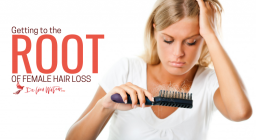
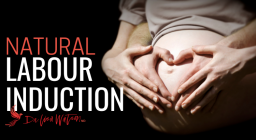
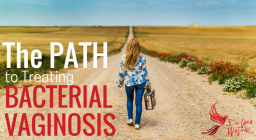

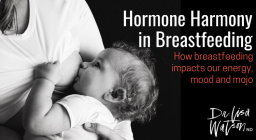

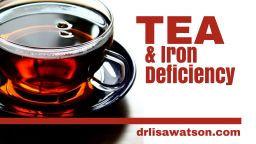

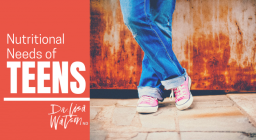
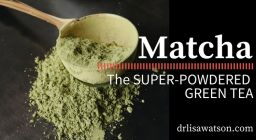
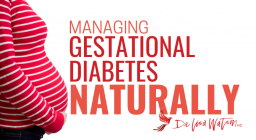
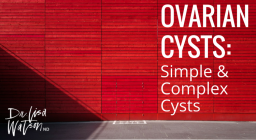
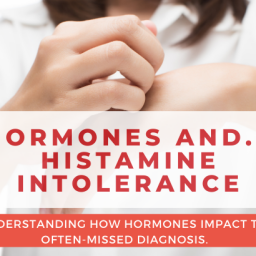
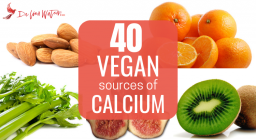

[…] The Endometriosis Diet […]
[…] can modify this action, and support healthy hormone levels, by following the Endometriosis Diet which emphasizes healthy fiber and avoidance of unhealthy fats. Probiotic supplements can also be […]